Tag: Andrea Traietti ’21
Tangents & Tirades
by The Cowl Editor on October 24, 2019
Tangents
Viral Pelosi Picture: Making a Point about Political Representation
Last week, a photo of Nancy Pelosi standing and pointing at President Trump during a White House meeting went viral. President Trump captioned the photo on Twitter “Nervous Nancy’s unhinged meltdown!” and the Democratic speaker of the House quickly fired back by making the shot her cover photo on Twitter. As phenomenal as the picture is, however, it is also an extremely concerning one.
Rightfully so, the picture has gained attention, and Pelosi has been supported by many since its release for her bravery to stand up to Trump in difficult and tense situations. This is not the first time that one of Pelosi’s interactions with Trump became viral. Her sarcastic clap during Trump’s State of the Union address last year and her confident exit from a White House meeting in December of 2018 (photographers caught her strutting out of the office and pulling down her sunglasses) went almost instantly viral, and resulted in more than a few meme adaptations.
Pelosi’s strength and poise in these moments makes her a leading example for politicians to follow, but more importantly, for women everywhere to look up to and emulate. But it is precisely Pelosi’s status as a woman that makes the picture equally as concerning as it is inspirational.
Pelosi is the main focal point in the picture, but looking into the corners, nearly every other person sitting around the table and in the room is an older white male. While we should continue praising Pelosi, it is critical that we highlight and question why there were not more women in the room in the first place.
Sheryl Sandberg, COO of Facebook, author of Lean In, and a leading women’s rights activist, has said, “We need women at all levels, including the top, to change the dynamic, reshape the conversation, to make sure women’s voices are heard and heeded, not overlooked and ignored.” Sandberg is right when she says that we need more women at the table, and this White House photo is a perfect example.
The United States is a diverse country, and half of the people living here are women. Our representative leadership absolutely must reflect that if we want to achieve equality.
—Andrea Traietti ’21

Blue Book Blues
In the wake of midterm season, memories of exams haunt students. Many of these memories are tainted by one thing in particular: the dreaded blue book.
Blue books are commonly used in classrooms for students to record their test answers, especially when tests include writing components.
Blue books are admittedly a convenient tool for professors to use when administering an exam. The stapled booklet prevents pages of a student’s work from going astray and its cover page ensures that every student’s work is identifiable.
Blue books, however, have many flaws.
The pages of the booklet are extremely thin, and this can lead to two different—but equally frustrating—consequences. First, pencils frequently break through the pages because they are so fragile. This is especially likely to happen during testing, as students often apply a significant amount of force to their writing instrument due to the pressure of the ticking clock. Alternatively, should a student choose to write with an ink pen instead of a pencil, they will be dismayed to discover that the ink will bleed through the pages.
Also, blue books are only used when it is time to take an exam; they are never used for anything pleasant. Therefore, these booklets are associated with stress and apprehension. A student’s stress level may rise simply at the sight of a blue book as they go into an exam.
Although blue books may be practical, professors should reconsider using them in their classrooms. If the utterance of the word “blue book” is enough to send shivers down a student’s spine, it may be the case that they are not the best option when it comes to exams.
—Kelly Wheeler ’21
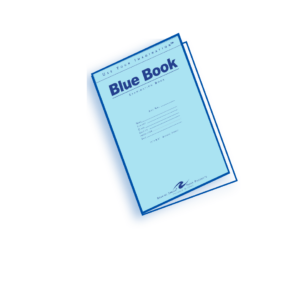
Writers’ Forum
by The Cowl Editor on September 26, 2019
Opinion

Writers’ Forum
If PC had the money for one major renovation or new building on campus, how should they use it?
Academic Buildings
by Andrea Traietti ’21
Opinion Co-Editor
If Providence College had the money for only one major renovation on campus, they should use it to renovate the older academic buildings on campus. When it comes down to it, PC students are really here for one reason: to learn.
While dorm renovations or new fixtures on campus might be nice, the current status of the residence halls and the looks of campus are not getting in the way of students’ education. The outdated technology and unaccommodating spaces in some of the older academic buildings, however, serve as a consistent barrier to learning.
Specifically, the Feinstein Academic Center and Accinno Hall need updating. The first problem with the classrooms in these two buildings is the space. In both buildings, tables and chairs, or in some cases chairs with attached desks, are crammed into tiny rooms. These rooms are filled with the maximum number of students in most classes, making an already small space feel even smaller.
Even worse, many of the classes in these two buildings are centered on class discussion: history classes, theology classes, even foreign language classes where students’ primary task is to speak, to name a few. The tightness of these classrooms makes it impossible to move desks or chairs to make the room more conducive to class discussion. This results in some people being confined to the ‘outer circle’ and not being able to participate, or others not being able to see the chalkboard or projector.
Speaking of projectors, the second major barrier to academic success in these buildings is their lack of modern technology. The technology that is there does not consistently work and is outdated compared to the equipment in the new science complex. The technology used in the science complex and business school has set a new standard for how rooms should be equipped, and any building that is lacking should be updated to meet this new standard. After all, smart classrooms open the door to new and creative ways of learning.
While there will always be other concerns about residence halls or ways to beautify PC’s campus, updating the older academic buildings on campus would be the most practical and worthwhile use of funds because it would directly improve PC students’ academic experience. And in the end, learning is the most important part of being at college.
Parking Lot
by Kelly Wheeler ’21
Opinion Co-Editor
Although we are very fortunate to attend a university with many state-of-the-art facilities such as the Science Complex and Concannon Fitness Center, there is always a need for renovation at Providence College. Admittedly, several academic and residence halls are overdue for touch-ups. However, if PC were to acquire funding for some sort of transformation on campus, the College should apply it toward the creation of a new student parking lot.
Student parking at PC is extremely limited. Permits are only available to juniors and seniors, and the number of parking spots available to this fragment of the student body remains insufficient. Thus, a lottery process is used to decide which students are able to purchase a parking permit. Unfortunately, the odds do not end up being in the favor of many upperclassmen.
This creates problems for countless students. Although some students enter the parking lottery simply to enjoy the luxury of having a vehicle on campus, many students have a serious need for one.
For example, many upperclassmen have off-site internships or student teaching placements in the Providence area. PC does not provide transportation for these opportunities, meaning students without cars need to find their own way to get there. Many carless students carpool with other students who have vehicles, but issues can result if the drivers are unreliable or they do not have a schedule that is identical to those of their passengers.
Additionally, students that live in on-campus apartments with kitchens typically have modest meal plans (or none at all), so they need to go grocery shopping to purchase food. Doing so can be very inconvenient without a car on campus. Although the RIPTA stops at Shaw’s, it can be difficult to lug bags of groceries onto the bus.
Also, students use their cars on campus as a means of transportation when long weekends or holiday breaks come around. Students often want to go home at these times, but if they were not granted a parking permit, they may be unable to do so if no one is available to pick them up at PC.
Even students that emerge victorious from the lottery process find themselves frustrated with parking on campus. James Galvin ’20 said, “I was lucky enough to get a parking pass my junior year. But parking spots are so limited on this campus that people would park in the student lots even though they didn’t have permits. Because of this, the lots would fill up and I would have nowhere to put my car. I often had to park in visitor parking as a result, and I ended up getting a ticket one time for doing so.”
In conclusion, there is a significant need for more student parking at PC. So, should PC get money to build or reconstruct something on campus, the College should dedicate it to alleviating the large discrepancy between the supply and demand for student parking on campus.
Residence Halls
by Marie Sweeney ’20
Opinion Staff
Each year, Providence College is becoming more popular, and each accepted class has grown exponentially in the past several years. However, the College has failed to accommodate the growing number of students in its outdated residence halls.
This has led to forced quads in both freshman and sophomore housing, forced room changes to accommodate students coming home from abroad, and various other problems. If PC were to receive an unlimited amount of money to update or renovate an aspect of campus there is no doubt that it should be allocated to renovate current residence halls and build new ones to fix this housing issue.
Being comfortable on a college campus is one of the most important aspects in ensuring students stay at their respective school. A student’s living space is a major factor that affects that comfort level. If they are not comfortable in their living space, it can have a negative impact on their life as a student.
The College must listen to the needs of students and prioritize them over other campus renovation projects. The popularity of the school starts with the students and if the students are not happy, the entire school will reflect that.
Coming in as a freshman and being forced to live with three other roommates in a small room can be a stressful and anxiety-inducing experience. It can also lead to further roommate problems. The College needs to allocate money to the building of a new residence hall, especially because the incoming classes are continuing to grow.
As for the quality of the housing, some of PC’s residence halls have been the same since the 1980s, and they look that way. Halls such as Aquinas, McVinney, St. Joe’s, and more desperately need renovation. PC is becoming a widely known and popular school and it needs to keep up to date with its residence halls, which will certainly have an impact on incoming students and parents.
PC must prioritize the comfort and contentment of its students over other projects that need major funding. The lack of student housing and the poor quality of available housing reflects badly on the college’s understanding of student comfort in their living situations. By funding a residence hall project, PC will not only acknowledge and excite current students, but will also further attract incoming students to make PC the best it could be.
Phillips Memorial Library
by Katherine Torok ’20
Associate Editor-in-Chief
The Phillips Memorial Library is nothing spectacular when compared to its neighboring buildings: the Ruane Center for the Humanities, the Science Complex, and Harkins Hall. Its boxy exterior made of dull bricks, dark windows, and sand colored concrete feels outdated and mundane compared to the beautiful architecture which surrounds it.
While Ruane and the Science Complex are relatively new in comparison to Harkins and the library, their architecture mirrors Harkins and makes the string of buildings feel cohesive.
The library, on the other hand, feels out of place. It first opened on January 6, 1969, and feels like it came straight from the late 60s and early 70s. Though it is connected to Ruane, the two feel completely different. This is especially apparent when walking from one building to the other through the small Inter-Hub. You transition from walking on dull geometric carpet to sleek tile, toward welcoming natural light. Natural lighting is essential; instead of being subjected to the harsh lighting that emits from the grid-like concrete ceiling of the library, the beautiful windows from Ruane allow for warm light to shine through on sunny days.
The library does have some great study spaces nestled in the corners of the second floor. Yet, they are often occupied due to their panoramic windows which let in an abundance of welcoming natural light.
This is why so many students choose to study in the Slavin Center or the Arthur F. and Patricia Ryan Center for Business Studies; the ambiance is warm and inviting thanks to the massive windows located throughout each building.
Aside from adding more windows throughout the library, it is also essential for the College to invest in different furniture on the first and second floors.
While the basement has bright, fresh, and modern furniture to encourage collaborative group work, everywhere you look on the first and second floor on the library is filled with the same chestnut colored wood.
The desks, tables, chairs, couches, and bookshelves are the same. Switching up the furniture or mixing different styles would be a fun and energizing change. In addition, the geometric carpet could be switched out for something more neutral.
Overall, the Phillips Memorial Library is good, but it could use some freshening up, both inside and out.
The addition of windows, installation of new flooring, updating of furniture, and a possible exterior makeover would create a more inviting environment and ultimately encourage more students to spend time doing work there.
There is no need to rebuild a new library, just continue the updates from the IT department upwards and outwards. As a result, the academic buildings of upper campus would look more cohesive and unified.
Should “Friars Hold Doors”? Considering the Safety Implications of a PC Mantra
by The Cowl Editor on September 22, 2019
Opinion

by Andrea Traietti ’21 and Kelly Wheeler ’21
Opinion Co-Editors
“Friars hold doors.” On Providence College’s campus, it is more than just a saying tossed around lightly or mentioned during tours; it is embodied not just in the physical action of holding the door open, but in extending a helping hand to other friars when they need it.
Although it is a kind gesture, the tragic incident this past weekend has revealed that, in some cases, holding doors might be hurting more than it is helping. While the saying is intended to ensure that members of the PC community are there is help each other, it could be putting some in unnecessarily dangerous situations.
On Sunday, Sept. 15 at 2:04 a.m., Lt. Eric L. Croce from the Office of Public Safety sent an email to all students containing a safety alert. The message stated that “on September 14, 2019, a female non-student reported that she had been sexually assaulted in an on-campus residence hall dorm, during the early evening hours by an unknown and unidentified college aged male who then left the area.” A follow-up email from Koren Kanadanian on Sept. 17 updated students that the man in question had been identified after an investigation by the Office of Public Safety. According to this second email, the assailant, like the assault victim, was not a PC student and steps have been taken to ensure that this individual will not be allowed back on campus.
It is unclear how either of these individuals—both non-students—were able to enter a PC dorm in the first place. It is entirely possible that the students could have been registered guests staying with a PC resident. That way, they would have access to a specific PC dorm through whichever PC students they were staying with.
On the other hand, it is also possible that one or both of these individuals entered the dorm the same way most PC students do: someone else held or opened the door for them. All day long, as students come and go from their dorms, they hold the door for each other. The same goes for weekend nights, as students head into other dorms to meet up with their friends.
Most students living on campus can attest that they have seen someone locked out of their dorm, waiting to be let in. Hardly any PC student would see that person and not let them in. And even fewer would give it a second thought after doing it.
But perhaps they should. Even if both of these individuals were registered guests of PC students, this incident should serve as a reminder, and as a warning, that holding doors—an action most PC students do every day—could be dangerous in the wrong situation. PC RAs even tell their residents at floor meetings that they should not open the doors to their dorm unless they know the people they are letting in.
This is not to say that you should never hold a door again. “Friars hold doors” is arguably a central part of the PC community. If you are returning to your room and notice that the person who sits next to you in Civ is trying to gain entrance to your dorm, you should feel comfortable helping them out.
However, if you do not know whether the person you are contemplating holding the door for is a PC student, it is worth it to simply check in with them to see who they are and what they are doing in your dorm. Maybe their response would reveal that they do not attend PC.
On the other hand, however, if you notice something suspicious or if someone standing outside is making you uncomfortable, it is far better to be safe than sorry. If the student really goes to PC, they can find another way in.
It may seem rude or unneighborly to refrain from holding a door when you notice someone a few steps behind you approaching it, but in the end, this can prevent a lot more harm than simply being perceived as impolite.
Safety alerts like the ones sent by Lt. Croce and Chief Kanadanian tend to evoke feelings of fear and helplessness. Students may find themselves worried that something like this may happen again, but they think that it is out of their power to prevent future incidents. Although the Office of Public Safety is devoted to protecting the Providence College community, safety is not exclusively their responsibility.
Writer vs. Writer: Is It Too Early to Be Invested in the 2020 Election?
by The Cowl Editor on September 22, 2019
Opinion

candidates participating in debates and speaking at town hall events. Photo courtesy of Gage Skidmore.
NO
by Elizabeth McGinn ’21
Portfolio Co-Editor
Although the 2020 presidential election is over a year away, it is of paramount importance that voters pay close attention to the race and all of its candidates.
While the Democratic debates began in June 2019, last week’s debates showed who the top contenders are. Joe Biden, Elizabeth Warren, and Bernie Sanders take the top spots for polling, while Harris, Buttigieg, O’Rourke, and Booker continue to garner interest.
For Democrats and independents, careful viewing of the Democratic debates is crucial for an informed decision in the primaries. Watching the debates, reading the candidates’ policies, and perhaps even looking at their Twitter pages can provide insight into which candidate to vote for.
On Feb. 3, the first caucus will occur in Iowa, which will greatly narrow the field for the Democratic candidates. Super Tuesday is on March 3, which includes Maine and Massachusetts. Rhode Island, New York, and Connecticut primaries will be held on April 28.
While the primaries occur in a few months, Americans should begin to prepare. Voter registration before the actual primaries and election is required for participation. Those who will be out of their hometowns during the primaries must request and complete an absentee ballot.
Voters from any party should keep a close eye on all the candidates, including incumbent President Donald Trump. Civic engagement is necessary for the functioning of American democracy, and voting is the best way to participate in democracy.
Students in particular have a duty to make an informed decision and vote. The policies of the current and next presidents will have the most direct effect on the younger generations of Americans. Ironically, the elderly historically have a higher voter turnout than the youth.
While the running of the country is in the hands of the president, engaging in politics is the best way to impact the future of America. By paying attention now, voters can choose the best possible path for the country.
YES
by Andrea Traietti ’21
Opinion Co-Editor
While it is important to remain politically conscious at all times, regardless of election cycle or time of year, it is too early to devote too much attention to the 2020 race. With the rounds of Democratic debates in the past few months, it is definitely important that voters remain aware of the main issues and key players as well as and what is at stake in this election.
But investing too much in the process at this point could hurt more than it helps for three reasons: it is too early for accurate polling; early debates take away from the creation of a united Democratic front; and it leaves the door open to a sort of political burnout on the part of voters.
First, polls in the 2016 election had Hillary Clinton as the frontrunner right up until the end. If the polls were not accurate in the weeks and even days leading up to the election, how accurate could they be a whole year out, before the primaries have even occurred? Polling this early leads people to the wrong conclusions, and for people who see polls that already have their personal choice first, it might discourage participation.
Second, the Democratic debates at this point have been a lot of noise and not a lot of actual content. Right now, candidates are willing to say whatever crazy or heated statement will get them the most press. It often distracts from the real issues at hand, and even worse, it creates unnecessary animosity in a party that needs unity now more than ever. If the Democrats cannot stand firmly behind one candidate, President Trump will be reelected.
Lastly, the early polling combined with Democratic bickering is a recipe for political burnout. It is next to impossible to keep up with ever-changing and conflicting poll information, and it is equally challenging to not get bogged down in the inflammatory rhetoric of the early debates.
In the end, it is not that voters should not be paying attention, it is that investing too much too early in the process could yield negative results. Jumping in just a bit later in the process still leaves time for voters to make an informed and educated decision. For now, focusing on the bigger picture and on current events ensures that voters will be ready to give their full attention to 2020 as we get closer to the election.
Writer vs. Writer: Does Campus Look Better in the Winter or Spring?
by The Cowl Editor on February 28, 2019
Campus
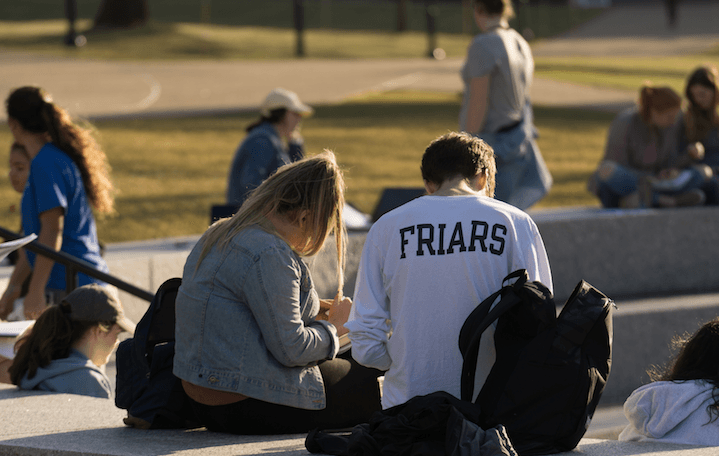
to Slavin Lawn or the outdoor classrooms to get their homework done. Nicholas Crenshaw ’20/The Cowl
by Emily Ball ’22
Snow, holiday cheer, sledding down the hills on campus—winter on a college campus is something indescribable.
As students get excited for the holiday season, school becomes more bearable and winter activities such as tree lightings and drinking hot chocolate occur.
The Providence College campus is more beautiful and far livelier during the winter season.
People argue that the spring and summertime are better because it is too cold on campus during the winter months. However, the heat in the dorm rooms and academic buildings during the spring and summer is often intolerable.
“It’s pretty hard living on campus during the summer when the dorm rooms get very hot,” Lauryn Anthony ’22 said. “I definitely find it more tolerable when all the buildings cool down in the winter.”
With snow comes snow day cancellations, which are far more enjoyable in college.
When classes are cancelled, students have the opportunity to hang out with their friends who live in close proximity.
Further, the campus is full of excitement during the winter months as students who came from far away experience snow for the first time. First experiences are a big aspect of the college experience, and winter provides a first exposure to snow for many students.
During the winter, the campus becomes more dynamic as dorm rooms across campus blast Christmas music. Students are excited for the upcoming break and also for the holidays that are approaching, so the energy on campus picks up.
In contrast to spring and summer nights, students are outside during the winter nights to play in the snow and go sledding down the small hills on campus.
“A bunch of my friends and I brought a tube and sled down one of the little hills near our dorm,” said Maddie Guth ’22. “It was really fun to bond with my friends over such a fun night.”
With all of the holiday spirit and fun opportunities on campus, the winter season is far superior to the spring and summer seasons in college.
by Andrea Traietti ’21
Whether it is playing SpikeBall and KanJam in front of the Slavin Center, spreading a blanket on the quad to sit and chat with friends, or listening to the music blasting out of some open window in McDermott Hall, you simply cannot beat springtime at Providence College.
That is not to say that winter at PC does not have its benefits, like the lit fireplace in the Fiondella Great Room, the Christmas lights outside of the Ruane Center for the Humanties, holiday activities on campus, and maybe the occasional snow day if we are lucky.
But as the snow quickly begins to melt away into a slushy, dirty mess, the magic of winter melts away with it. We are left with nothing but grey sidewalks, days that get dark at 4 p.m., and freezing cold weather.
With spring, on the other hand, the benefits last longer than a few hours, and they have an even greater effect on the campus community.
On the first warm day of spring, everyone and everything seems to burst back to life, and this liveliness could not come at a better time.
With finals right around the corner, the warm weather and sunshine creates a mood of hopefulness and positivity that permeates campus and makes everyone forget about their exams and papers, at least for a little while.
And speaking of things that come back to life, the PC grass returns to its incredibly vibrant green color, the trees have leaves again, and flower buds pop up all over campus. It is hard to not feel enticed to go outside, and the fresh air after a winter trapped in stuffy dorm rooms is much needed.
The list of specific reasons why spring is the best season at PC could be 20 pages long. But the biggest reason is one that really cannot be described. Seeing everyone outside with their friends, relaxing, playing games, and listening to music on Slavin Lawn or in front of Aquinas Hall, there is simply a different energy on campus.
Amidst the business of jam-packed schedules, the fact that everyone takes a moment to slow down and gather together cannot help but make you feel like a part of the Friar Family and grateful just to be here at PC.
Tangents and Tirades
by The Cowl Editor on November 8, 2018
Opinion

Sharing is Caring: Sidewalk Etiquette
Sidewalks on campus are the highways of Providence College. Every day, students use them to get to and from their classes and appointments. And like any off-campus highway, the PC sidewalks are frequently congested with easily-avoidable traffic.
While sidewalks on campus can certainly function as social spaces, their prime purpose is to allow for swift travel between various places. When individuals walk two or even three across, it blocks traffic, and in some cases, prevents a student from making it to their class on time.
Inadvertent swerving is another prevalent walking behavior on sidewalks and in the dining halls, which inhibits others from getting to their destination. Taking the time to focus on one’s surroundings is the simplest fix for this.
Sure, it can be easy to get distracted and caught up in the humorous anecdote your friend just shared, but in the few seconds that were spent slowing down and stopping from intense laughter, several people had to walk around you. You became an obstacle in another person’s travel path.
It is important to remember that we are each one of 4,874 students sharing the Providence College campus. Each of those students occupies space and needs to be taken into account when traveling around the grounds of PC.
“Share the road” has become a popular slogan for driving safely across the nation. Adopting this policy when walking around campus will create a more considerate, traffic-free community at PC.
—Joshua Chlebowski ’21
Sports Culture at PC
The words of “Sweet Caroline” are much more bittersweet on this campus than they have been my entire life.
Growing up in Massachusetts, sports-loving culture is something you are born with; it comes naturally. The amount of pride we have for our sports teams is absolutely unreal.
Coming to Providence College and realizing that not everyone worships Tom Brady or loves the Red Sox was an adjustment I’m still getting used to.
Although PC is in New England, it’s quite obvious that not everyone comes from the area and therefore not everyone has the same interests, especially when it comes to sports.
To people from New England, it may seem that Brady can do no wrong. Unfortunately, the rest of the country does not feel the same.
This becomes a problem especially around playoff seasons, when New England fans are known to get even more obsessive than they are during the regular season.
What makes these rivalries and opinions even better is when a Boston team wins, which is often.
Boston takes pride in our teams and makes sure everyone knows how happy we are.
The air around campus was certainly split after the Boston Red Sox won the World Series this year; many students were ecstatic while others were rolling their eyes at the cheers of Boston fans.
Although it was a culture shock, the air of competition around PC regarding professional sports affiliations adds to the fun and the constantly changing atmosphere of the campus.
—Julia McCoy ’22
Don’t Let Fear Hold You Back
Growing up in a small, safe, suburban town, I was accustomed to going where I wanted, when I wanted without being concerned about any potentially dangerous situations.
At home, I often ran through the neighborhoods near my house, around local farms, or down the various hiking trails nearby. Other than the occasional unfriendly dog, I never felt unsafe.
But coming to Providence College, I realized that I couldn’t take the same liberties I did while at home. Running off campus seemed to be a daunting endeavor, especially considering PC’s location in general and with stories like Mollie Tibbetts’ in the back of my mind.
I suddenly realized that simply by being a woman, normal, everyday activities could potentially turn dangerous—walking through a parking lot at night, taking an Uber alone, or going for a run.
It’s not fair that this is the reality women contend with daily or that we have to cope with constant underlying anxiety and fear.
When I run off campus, I often feel a certain level of fear—fear that someone could yell something at me, fear that a car may stop and someone could get out and approach me, fear that if I run the same route too many times, someone could notice my pattern.
But what I have realized is that this fear can’t hold me back, and it shouldn’t hold any woman back. This fear drives me to take extra precautions when I run, but it also motivates me to live how I want to, and to not let circumstances beyond my control dictate my life, even when they are scary.
I’ve learned that this fear, while unfair, doesn’t need to be a roadblock. As women, we must acknowledge this fear, accept it, and choose to go on anyway. Because when we persist, we begin to dismantle fear itself.
—Andrea Traietti ’21
Underage Drinking Perpetuates Dangerous Cultural Norms
by The Cowl Editor on October 4, 2018
Opinion
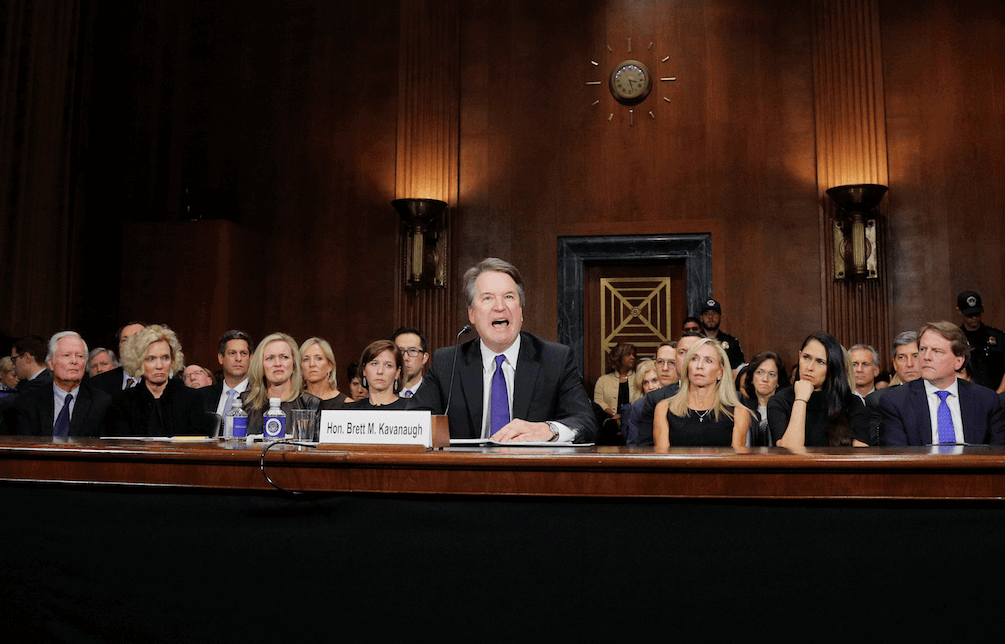
underage drinking culture. Photo Courtesy of Jim Bourg/Reuters.
by Andrea Traietti
Assistant Opinion Editor
On his 1982 calendar, Brett Kavanaugh scribbled in his plans for July 1: “go to Timmy’s for skis w/ Judge, Tom, PJ, Bernie, Squi.” His yearbook entry is littered with references to beer consumption and drinking games. And while it can be easy to dismiss these warning signs as “boys being boys,” the fact that Kavanaugh sat in front of the Senate Judiciary Committee last week and literally said to senators—on multiple occasions— “I liked beer. I still like beer,” raises some troubling questions about drinking culture and entitlement in this country.
There is a moral responsibility to address this culture head on at a young age; Providence College is not exempt from this responsibility. High school and college shenanigans are not confined within the adolescent years, some kind of time warp where one’s actions do not matter and do not play a role later on in life.
Kavanaugh is proof. 36 years later, he is testifying under oath about his actions and habits in high school—and for good reason. Evidence of his arguably excessive drinking habits and abuse of alcohol could ultimately connect to his lack of recollection and his denial of the claims of sexual assault by Dr. Christine Blasey Ford. Without a doubt, the hearing and the ensuing FBI investigation are bringing to light the problem of sexual assault, but they are also exposing a different and not entirely unrelated issue: high school and college drinking culture.
Underage drinking is not just a problem for the reasons cited in sixth grade health class, i.e. stunted growth and slowed brain development. Those things are problems, but there is a bigger-picture, more widespread issue at hand: underage drinking is inextricably linked to entitlement. And entitlement is toxic.
Drinking in high school and college provides a feeling of freedom, a sort of invincibility, and the perverted comfort that you are not letting “the best years of your life” go to waste. But it is time to recognize that even this use of alcohol really is abuse. It is so problematic that instead of viewing Kavanaugh’s drinking as a serious problem, many are looking at it as a sign of his patriotism and his masculinity.
It is not patriotic, it is not manly, and it certainly is not innocent fun. College students are not invincible, and anything that makes them feel as such is an explicit danger not only to those who participate in drinking, but to the community at large. It is a toxic culture that feeds directly into the culture of toxic masculinity—and if Kavanaugh’s testimony last week had one central theme, that would be it.
This toxicity, this entitlement does not go away, it lasts a lifetime. And that is exactly why it needs to be prevented from the start. PC plays a role in this prevention. In 2017 alone, there were 459 on-campus property “disciplinary referrals” for liquor law violations. In the previous year there were 397. This is a 15 percent increase.
It is entirely unrealistic to expect, assume, or demand that college students in the 21st century, even those under 21-years-old, abstain from drinking alcohol. The use of alcohol on college campuses has always been present, and always will be; however, the boundary between use and abuse is not a fine line—it is a bold one. And it is one that has extremely dangerous consequences personally, socially, and culturally when crossed.
That being said, PC clearly needs to change its approach to these violations. Perhaps a violation of the law merits more than a referral. Two things must change. First, PC needs to reform its alcohol education policy because the 15 percent increase in the last year alone shows that whatever is being taught now is not effective. Second, there needs to be serious repercussions for violations, and those repercussions must be understood and internalized by the student body at large.
Drinking has become such a central tenet to the college experience that it is hard to picture life without it. But because the habits—both good and bad—established during these years are the ones that stick for a lifetime, we need to reevaluate drinking’s role in our culture. We need to sever the link between drinking and the sense of entitlement because that connection only fuels the fire of toxicity in social circles and empowers young adults to act with no inhibitions.
Tangents and Tirades
by The Cowl Editor on September 13, 2018
Opinion
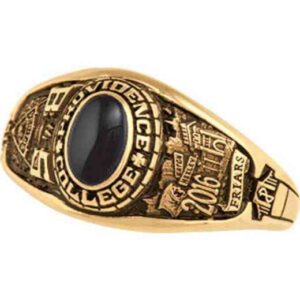
Give Students More PC Prints
Any alternative to buying over $200 worth of textbooks per semester seems worth it. This includes printing out packets of reading for every class.
Initially, $40 worth of PC Prints appears to be more than enough to cover five classes. But before you know it, you find yourself adding money by the third week of the semester.
While it is a tremendous help to students to be given money to cover printing costs, it is unfair for those who might take four or more classes that contain a hefty amount of reading.
Many students prefer to have physical copies of their assignments so that they are able to mark the paper and make notes. However, this becomes impossible when they use up their $40 within the first couple of weeks.
Students who major in subjects such as English, history, or political science often have extra readings on top of textbooks, and with two or three classes a week, the cost becomes significant.
In order to better assist students with this predicament, it would be helpful if they were given more PC Prints at the beginning of each semester.
This would help to alleviate any stress that comes along with having to mentally budget the amount of money students can spend for each class or week. The $0.08 cents per page does not seem like a lot, but over time it adds up.
-Hannah Paxton ’19
Don’t Stress About Senior Events
Senior year of college is notorious for being the most fun and laid-back year. However, at times, the stress and chaos can be overwhelming.
Whether you are trying to find a balance between studying for the LSATs and spending quality time with your friends, or choosing between doing homework and picking out the insane amount of outfits that are needed for Senior Ring Weekend, it is a lot for any Providence College student to handle.
Senior year is full of exciting events, however, it is almost too easy to get caught up in the stress of preparing for it all that these events can become difficult to actually enjoy.
It is hard not to get caught up in the little moments of stress when homework is piling on and the countdown to SRW is getting shorter and shorter, but this is when self-care is crucial.
Sometimes we all just need to take a break. This is true at any point in the semester, but especially so in the beginning when you are so excited to be back that you just want to dive in and say yes to every opportunity.
In order to really enjoy every moment of college, we all need to be the best, least-stressed versions of ourselves.
Try not to panic when it starts to feel like there aren’t enough hours in the day for you to get everything done.
Take a step back and treat yourself to something that helps you relax. The world would not stop spinning because you took a break to watch your favorite show for an hour or two.
-Bridget Blain ’19
Serena Williams Speaks Out
“I have never cheated in my life,” she said. “You owe me an apology.”
Serena Williams spoke these words to the chair umpire, Carlos Ramos, while competing in the 2018 U.S. Open Women’s Championship final this past weekend.
Her comments, delivered directly to the umpire while she was on the court, earned her a warning and set off a series of other penalties for the tennis star—including a point penalty and a game penalty. In total, Williams was fined $17,000.
Her comments are raising critical questions about the fairness of the rules of tennis, and moreover about the discrepancies in how women—especially women of color—and their male counterparts are treated.
If Williams were a white man, like tennis player Novak Djokovic, would her actions have incurred the same penalty, or any penalty at all?
It is critical that we continue to ask questions like these, because they apply not just on the tennis court, but in real life as well. Now is not the time to ask whether Williams’s so-called “outburst” occurred in the appropriate forum or if her comments were delivered in the wrong place and the wrong time.
Where and how she delivered her comments should not distract from the real social problem at hand, nor should it detract from the valuable lesson this incident offers.
In the end, Williams was just a woman in her own workplace, and she spoke up against what she rightly viewed as an injustice. In that way, her bravery and boldness are things we can all learn from.
-Andrea Traietti ’21
Staying Politically Engaged on Campus
by The Cowl Editor on August 30, 2018
Campus
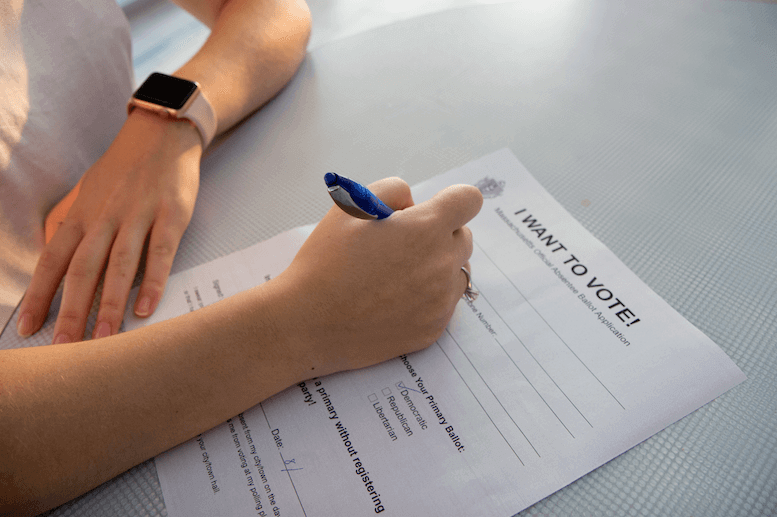
by Andrea Traietti ’21
Asst. Opinion Editor
While being back inside the “PC Bubble” can be comforting, it is important not to forget the larger world that exists outside of this campus, and the reality that even while we are on campus, that world is affecting us—and we have the power to affect it, too.
This fall will be an important one for the course of the nation, as midterm elections approach in November.
On a national level, there is the potential for major shifts in both the House of Representatives and the Senate. Additionally, there are 36 states holding elections for governor.
It is increasingly important that college students make the push to remain politically conscious and active while on campus, especially in the coming months.
First and foremost, students’ rights and responsibilities follow them to campus, and voting is one of those responsibilities.
Voter turnout amongst 18-29-year-olds is alarmingly low. Without this turnout, the electorate is composed primarily of older generations who often have vastly different priorities than younger groups.
There are several concrete steps students can and should take in the coming weeks.
Most importantly, they should check to make sure they are registered to vote. Vote.org is a great resource that makes it very easy to check your registration status.
Should students discover they have not yet registered, they can check the deadline specific to their state and register to vote on the very same site.
Once registered, students should apply for an absentee ballot, another service provided by vote.org.
Aside from voting, there are more personal ways that students can stay politically engaged and connected with the world off campus.
Through the Providence College Bookstore, students can subscribe to the New York Times online for just $1 a week. Other periodicals have similar discounted rates for college students.
These subscriptions offer a great opportunity to stay connected and up-to-date with current events, which is important considering that the news students hear on a daily basis at PC is so campus-driven.
Another great way to keep up with the news is through social media. While some students may not have a TV, the time, or the focus to tune into the news each night, most major news networks have Twitter accounts which they use to share stories and articles.
Though these ideas might seem obvious, it is so important to keep them in mind during this busy time, and going forward in the future.
We must not let the busyness of our own lives and the familiarity of the PC campus limit or restrict our worldview.
Instead, we should use our PC education as a lens through which we should not only view and analyze the world beyond campus, but also learn to become active participants in the advancement of our society.
Tangents and Tirades
by The Cowl Editor on April 26, 2018
Opinion
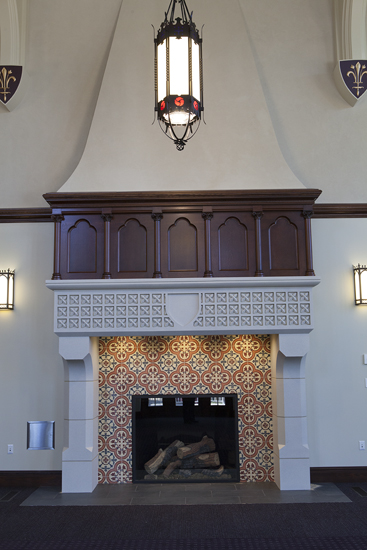
Light Up the Great Room Fireplace
Maybe this is the wizard in me, but one of my favorite spots on campus is the Fiondella Great Room in the Ruane Center for the Humanities, or what is possibly better known as the Hogwarts room. However, as of late, this spot on Providence College’s campus has actually lost some of its magic because, for some reason, the fireplace is never lit anymore. Even during the fall semester when the weather was cold, flurries were in the forecast, and a snow day was on the horizon, the fireplace remained inactive.
To many PC students, this spot is more than just reminiscent of Hogwarts; it provides a sense of comfort and reminds students of their home. For those who get homesick, this can make someone’s day a bit brighter.
This is also a common study area for many students; for those who cannot decide amongst the more serious, we- mean-business library, or the more social Slavin Center, Ruane is that comfortable in-between spot. The lit fireplace keeps these study dwellers in cheery spirits.
Of course there is the opposing argument that the lit fireplace actually keeps students too comfortable and relaxed, causing them to become sleepy from the soothing warmth. To those I say, you always have the option of sitting someplace else. As far as I have heard, there have never been any complaints, nor incidents surrounding the Ruane fireplace. Therefore, the Friars need to be fired up!
-McKenzie Tavella ’18
The Importance of Saying Thank You
Since I began my freshman year, one of my favorite parts about Providence College has been the unspoken rule that “Friars hold doors.” I like this rule for so many reasons, but mostly because it speaks to the kind, welcoming community of students, faculty, and staff on the PC Campus. I have heard countless students talk about this “Friars hold doors” concept, either among themselves, on tours, or with prospective students. And maybe the best thing about this rule is that everyone actually follows it—even when it means you have to awkwardly jog towards a door that someone probably should have just let shut.
The only downfall to this PC custom is that it happens so frequently that it is almost expected. The result is that sometimes we forget to say thank you. But we need to make a more concerted effort not to forget. It is so important to remember that every act of kindness—no matter how big or small—merits a “thank you.”
A simple “thank you” to the person who holds the door for you or to the member of the Sodexo staff who hands you your plate of chicken nuggets in the dining hall on Thursday can go a long way. Especially as we approach the end of the year when stress is high and everyone is busy, perhaps we should all try to adopt another unspoken rule: Friars say, “Thank you.”
-Andrea Traietti ’21
